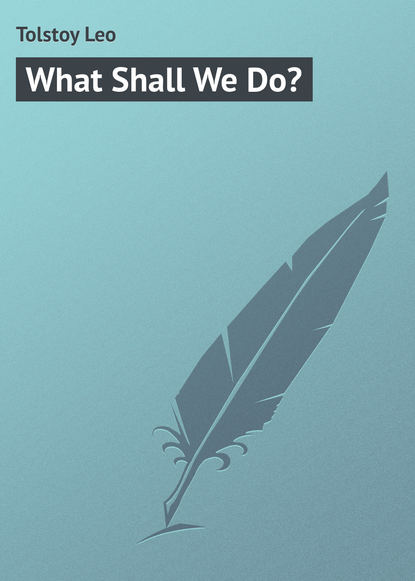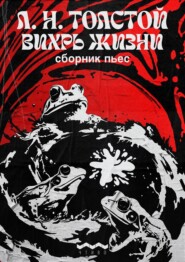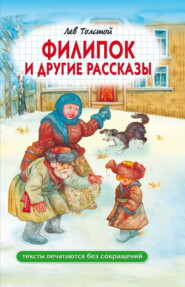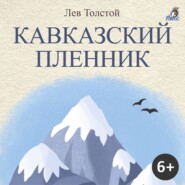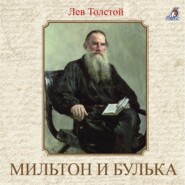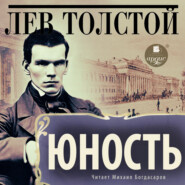По всем вопросам обращайтесь на: info@litportal.ru
(©) 2003-2025.
✖
What Shall We Do?
Настройки чтения
Размер шрифта
Высота строк
Поля
To say that money does not create bondage, is the same as to have asserted, fifty years ago, that serfdom did not create slavery. Political economists say that money is an inoffensive medium of exchange, notwithstanding the fact that its possession enables one man to enslave another. Why, then, was it not said half a century ago that servitude was, in itself, an inoffensive medium of reciprocal services, notwithstanding the fact that no man could lawfully enslave another? Some give their manual labour, and the work of others consists in taking care of the physical and intellectual welfare of the slaves, and in superintending their efforts.
And, I fancy, some really did say this.
CHAPTER XIX
If the object of this sham pseudo-science of Political Economy had not been the same as that of all other legal sciences, – the justification of coercion, – it could not have avoided noticing the strange phenomena that the distribution of wealth, the deprivation of some men of land and capital, and the enslavery of some men to others, depend upon money, and that it is only by means of money that some men utilize the labour of others, – in other words, enslave them.
I repeat that a man who has money may buy up and monopolise all the corn and kill others by starvation, completely oppressing them, as it has frequently happened before our own eyes on a very large scale.
It would seem then that we ought to examine the connection of these occurrences with money; but Political Science, with full assurance, asserts that money has no connection whatever with the matter.
This science says, “Money is as much an article of merchandise as anything else which contains the value of its production, only with this difference, – that this article of merchandise is chosen as the more convenient medium of exchange for establishing values, for saving, and for making payments. One man has made boots, another has grown wheat, the third has bred sheep; and now, in order to exchange more conveniently, they put money into circulation, which represents the equivalent of labour; and by this medium they exchange the soles of boots for a loin of mutton, or ten pounds of flour.”
Students of this sham science are very fond of picturing to themselves such a state of affairs; but there has never been such a condition in the world. This idea about society is like the fancy about the primitive, prehistoric, perfect human state which the philosophers cherished; but such a state never existed.
In all human societies where money has been used there has also been the oppression by the strong and the armed of the weak and the defenceless; and wherever there was oppression, there the standard of value, money, whatever it consisted of, cattle or hides, skin or metals, must have unavoidably lost its significance as a medium of exchange, and received the meaning of a ransom from violence.
There is no doubt that money does possess the inoffensive properties which science enumerates; but it would have these properties only in a society in which there was no violence, – in an ideal state. But in such a society money would not be found as a general measure of value. In such a community, at the advent of violence, money would immediately lose its significance.
In all societies known to us where money is used it receives the significance of a medium of exchange only because it serves as a means of violence. And its chief object is to act thus, – not as a mere medium. Where violence exists, money cannot be a true medium of exchange, because it is not a measure of value, – because, as soon as one man may take away from another the products of his labour, all measures of value are directly violated. If horses and cows, bred by one man, and violently taken away by others, were brought to a market, it is plain that the value of other horses and cows there, when brought into competition with stolen animals, would no longer correspond with the labour of breeding them. And the value of everything else would also change with this change, and so money could not determine values.
Besides, if one man may acquire by force a cow or a horse or a house, he may by the same force acquire money itself, and with this money acquire all kinds of produce. If, then, money itself is acquired by violence, and spent to purchase products, money entirely loses its quality as a medium of exchange.
The oppressor who takes money and gives it for the products of labour does not exchange anything, but obtains from labour all that he wants.
But let us suppose that such an imaginary and impossible state of society really existed, in which money is in circulation, without the exercise of general violence, – silver or gold serving as a measure of value and as a medium of exchange. All the savings in such a society are expressed by money. There appears in this society an oppressor in the shape of a conqueror. Let us suppose that this oppressor claims the cows, horses, clothes, and the houses of the inhabitants; but, as it is not convenient for him to take possession of all this, he naturally thinks of taking that which represents among these men all kinds of values and is exchanged for everything, – money. And at once in this community, money receives, for the oppressor and his assistants, another signification, and its character as a medium of exchange therefore immediately ceases.
The measure of the values will always depend on the pleasure of the oppressor. The articles most necessary to him, and for which he gives more money, are considered greater value, and vice versa; so that, in a community exposed to violence, money at once receives its chief meaning, – it becomes a means of violence and a ransom from violence, and it retains, among the oppressed, its significance as a medium of exchange only so far as that is convenient to the oppressor.
Let us picture the whole affair in a circle, thus: – The serfs supply their landlord with linen, poultry, sheep, and daily labour. The landlord substitutes money for these goods, and fixes the value of the various articles sent in. Those who have no linen, corn, cattle, or manual labour to offer, may bring a definite sum of money.
It is obvious, that, in the society of the peasants of this landlord, the price of the various articles will always depend upon the landlord's pleasure. The landlord uses the articles collected among his peasants, and some of these articles are more necessary for him than others: he fixes the prices for them accordingly, more or less. It is clear that the mere will and requirements of the landlord must regulate the prices of these articles among the payers. If he is in want of corn, he will set a high price for a fixed quantity of it, and a low price for linen, cattle, or work; and therefore those who have no corn will sell their labour, linen, and cattle to others, in order to buy corn to give it to the landlord.
If the landlord chooses to substitute money for all his claims, then the value of things will again depend, not upon the value of labour, but first upon the sum of money which the landlord requires, and secondly upon the articles produced by the peasants, which are more necessary to the landlord, and for which he allows a higher price.
The money-claim made by the landlord on the peasants ceases to influence the prices of the articles only when the peasants of this landlord live separately from other people and have no connection with any one; and secondly, when the landlord employs money, not in purchasing things in his own village, but elsewhere. Only under these two conditions would the prices of things, though changed nominally, remain relatively the same, and money would become a measure of value and a medium of exchange.
But if the peasants have any business connections with the inhabitants surrounding them, the prices of their produce, as sold to their neighbours, would depend on the sum required from them by their landlord. (If less money is required from their neighbours than from themselves, then their products would be sold cheaper than the products of their neighbours, and vice versa.) Again, the landlord's money-demand would cease to influence the prices of the articles, only when the sums collected by the landlord were not spent in buying the products of his own peasants. But if he spends the money in purchasing from them, it is plain that the prices of various articles will constantly vary among them according as the landlord buys more of one thing than another.
Suppose one landlord has fixed a very high poll-tax, and his neighbour a very low one: it is clear that on the estate of the first landlord every thing will be cheaper than on the estate of the second, and that the prices on either estate will depend only upon the increase and decrease of the poll-taxes. This is one effect of violence on value.
Another, rising out of the first, consists in relative values. Suppose one landlord is fond of horses, and pays a high price for them; another is fond of towels, and offers a high figure for them. It is obvious that on the estate of either of these two landlords, the horses and the towels will be dear, and the prices of these articles will be out of proportion to those of cows or of corn. If to-morrow the collector of towels dies, and his heirs are fond of poultry, then it is obvious that the price of towels will fall and that of poultry will rise.
Wherever in society there is the mastery of one man over another, there the meaning of money as the measure of value at once yields to the will of the oppressor, and its meaning as a medium of exchange of the products of labour is replaced by another, – that of the most convenient means of utilizing other people's labour.
The oppressor wants money neither as a medium of exchange, – for he takes whatever he wants without exchange, – nor as a measure of value, – for he himself determines the value of everything, – but only for the convenience it affords of exercising violence; and this convenience consists in the fact that money may be stored up, and is the most convenient means of holding in slavery the majority of mankind.
It is not convenient to carry away all the cattle in order always to have horses, cows, and sheep whenever wanted, because they must be fed; the same holds good with corn, for it may be spoiled; the same with slaves; sometimes a man may require thousands of workmen, and sometimes none. Money demanded from those who have not got it makes it possible to get rid of all these inconveniences and to have everything that is required; and this is why the oppressor wants money. Besides which, he wants money so that his right to utilize another man's labour may not be confined to certain men but may be extended to all men who require the money.
When there was no money in circulation each landlord could utilize the labour of his own serfs only; but when they agreed to demand from the peasants money which they had not, they were enabled to appropriate without distinction the labour of all men on every estate.
Thus the oppressor finds it more convenient to press all his claims on labour in the shape of money, and for this sole object is it desired. To the victim from whom it is taken away money cannot be of use, either for the purpose of exchange (seeing he exchanges without money, as all nations have exchanged who had no government); nor for a measure of value, because this is fixed without him; nor for the purpose of saving, because the man whose productions are taken away cannot save; neither for payments, because an oppressed man always has more to pay than to receive; and if he does receive anything, the payment is made, not in money, but in articles of merchandise in either case; whether the workman takes his goods from his master's shop to remunerate his labour, or whether he buys the necessaries of life with his earnings in other shops, the money is required from him, and he is told by his oppressors that if he does not pay it they will refuse to give him land or bread, or will take away his cow or his horse, or condemn him to work, or put him in prison. He can only free himself from all this by selling the products of his toil, his own labour, or that of his children.
He will have to sell this according to the prices established, not by a regular exchange, but by the authority which demands money of him.
Under the conditions of the influence of tribute and taxes on prices, – which everywhere and always repeat themselves, as much with the land-owners in a narrow circle, as with the state on a larger scale (in which the causes of the modification of prices are as obvious to us, as the motion of the hands and feet of puppets is obvious to those who look behind the curtain and see who are the wire-pullers): – under these circumstances, to say that money is a medium of exchange and a measure of value, is at least astonishing.
CHAPTER XX
All slavery is based solely on the fact that one man can deprive another of his life, and by threatening to do so can compel him to do his will. We may see for certain that whenever one man is enslaved by another, when, against his own will and by the will of another, he does certain actions contrary to his inclination, the cause, if traced to its source, is nothing more nor less than a result of this threat. If a man gives to others all his labour, has not enough to eat, has to send his little children from home to work hard, leaves the land, and devotes all his life to a hated and unnecessary task, which happens before our own eyes in the world (which we term civilized because we ourselves live in it), then we may certainly say that he does so only because not to do so would be equivalent to loss of life.
Therefore in our civilized world, where the majority of the people, amidst terrible privations, perform hated labours unnecessary to themselves, the greater number of men are in a slavery based on the threat of being deprived of their existence. Of what, then, does this slavery consist? Wherein lies this power of threat?
In olden times the means of subjugation and the threat to kill were plain and obvious to all: the primitive means of enslaving men then consisted in a direct threat to kill with the sword.
An armed man said to an unarmed, “I can kill thee, as thou hast seen I have done to thy brother, but I do not want to do it: I will spare thee, – first, because it is not agreeable for me to kill thee; secondly, because, as well for me as for thee, it will be more convenient that thou shouldst labour for me than that I should kill thee. Therefore do all I order thee to do, but know that, if thou refusest, I will take thy life.”
So the unarmed man submitted to the armed one and did everything he was ordered to do. The unarmed man laboured, the armed threatened. This was that personal slavery which appeared first among all nations, and which still exists among primitive races.
This means of enslaving always begins the work; but when life becomes more complicated it undergoes a change. With the complication of life such a method presents great inconveniences to the oppressor. Before he can appropriate the labour of the weaker he must feed and clothe them and keep them at work, and so their number remains small; and, besides, this compels the slave-holder to remain continually with the slaves, driving them to work by the threat of murdering them. And thus another means of subjugation is developed.
Five thousand years ago (according to the Bible) this novel, convenient, and clever means of oppression was discovered by Joseph the Beautiful.
It is similar to that employed now in the menageries for taming restive horses and wild beasts.
It is hunger!
This contrivance is thus described in the Bible (Genesis xli., 48–57): —
And he (Joseph) gathered up all the food of the seven years, which were in the land of Egypt, and laid up the food in the cities: the food of the field, which was round about every city, laid he up in the same.
And Joseph gathered corn as the sand of the sea, very much, until he left numbering; for it was without number.
And the seven years of plenteousness, that was in the land of Egypt, were ended.
And the seven years of dearth began to come, according as Joseph had said: and the dearth was in all lands; but in all the land of Egypt, there was bread.
And when all the land of Egypt was famished, the people cried to Pharaoh for bread: and Pharaoh said unto all the Egyptians, Go unto Joseph; what he said to you, do.
And the famine was over all the face of the earth: And Joseph opened all the storehouses, and sold unto the Egyptians; and the famine waxed sore in the land of Egypt.
And all countries came into Egypt to Joseph for to buy corn; even because that the famine was so sore in all lands.
Joseph, making use of the primitive means of enslaving men by the threat of the sword, gathered corn during the years of plenty in expectation of years of famine which generally follow years of plenty, – men know all this without the dreams of Pharaoh, – and then by the pangs of hunger he made all the Egyptians and the inhabitants of the surrounding countries slaves to Pharaoh more securely and conveniently. And when the people began to be famished, he arranged matters so as to keep them in his power forever.
(Genesis xlvii., 13–26.) And there was no bread in all the land; for the famine was very sore, so that the land of Egypt and all the land of Canaan fainted by reason of the famine.
And Joseph gathered up all the money that was found in the land of Egypt, and in the land of Canaan, for the corn which they bought: and Joseph brought the money into Pharaoh's house.





